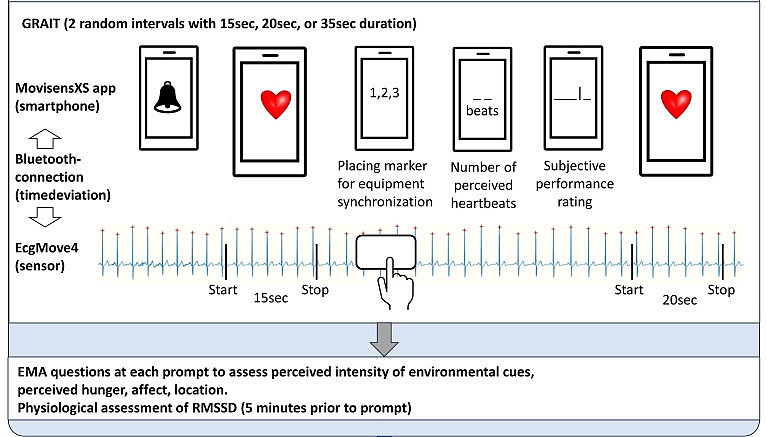Cardiac interoception
Cardiac interoception can be measured in three dimensions. Interoceptive accuracy is the correspondence between perceived and actual heartbeats, interoceptive sensitivity is the self-assessed ability to focus on internal processes. Interoceptive metacognition is the correspondence between interoceptive accuracy and interoceptive sensitivity. Recent studies show that fasting (16/8) can modulate cardiac interoception along these dimensions.
► Rominger et al. (2021) Short-term fasting induced changes in HRV are associated with interoceptive accuracy: Evidence from two independent within-subjects studies.

The Graz Ambulatory Interoception Task (GRAIT) - cardiac interoception made measurable in the field
There are situations in which we perceive body signals better and worse. We have developed an ambulatory psychophysiological method to investigate these fluctuations in everyday life. The psychometric properties (reliability and validity) of the GRAIT are convincing. It can be used to study the perception of body signals in everyday life.
► Rominger C, Schwerdtfeger AR (2023) Dynamic heartbeat tracking beyond the laboratory: Introducing the novel Graz Ambulatory Interoception Task (GRAIT).
► Rominger C, Schwerdtfeger AR (in press) The misjudgment of interoceptive awareness: Systematic overrating of interoceptive awareness among individuals with lower interoceptive metacognitive skills.